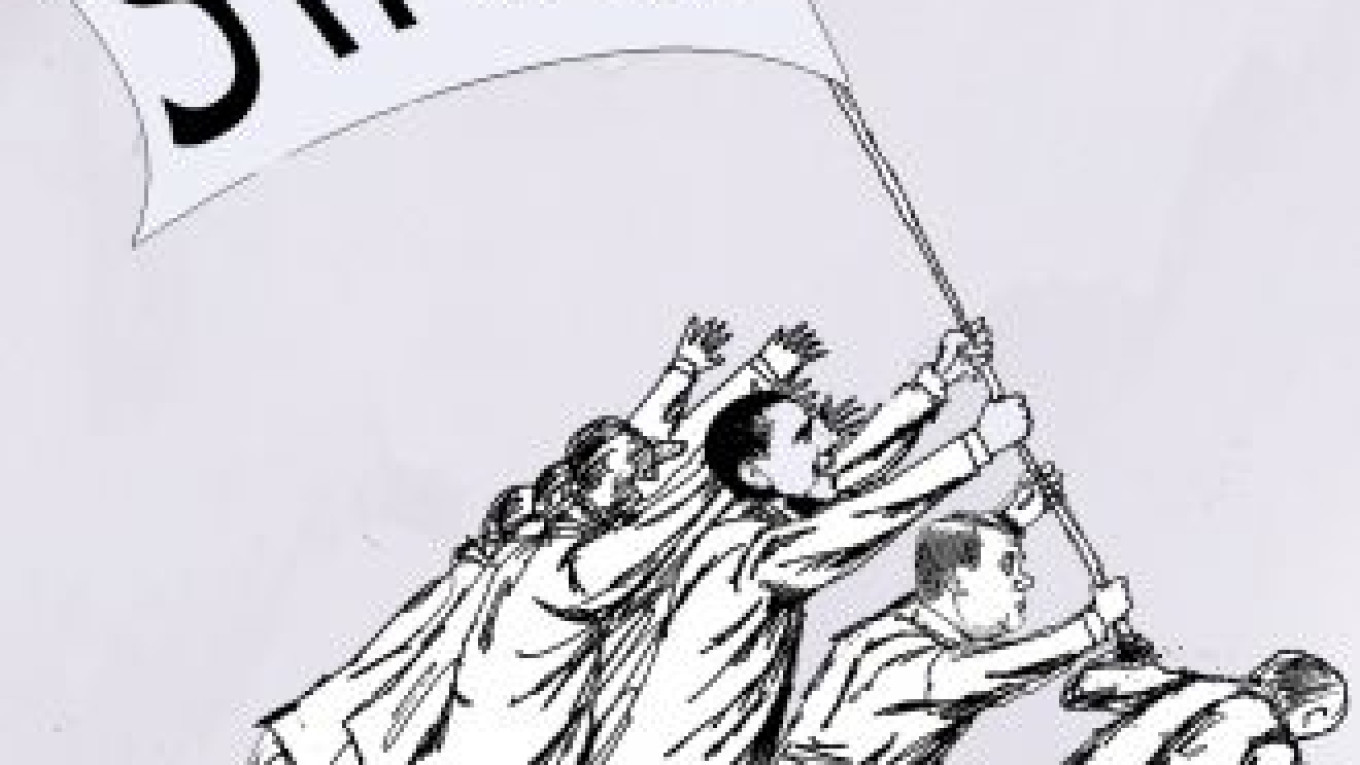The New START agreement, which is scheduled to be signed by U.S. President Barack Obama and President Dmitry Medvedev on Thursday in Prague, is an important step toward nuclear disarmament. It will also play a crucial role in convincing non-nuclear states that signed the Nuclear Non-Proliferation Treaty remain non-nuclear.
Russia is satisfied with the end result, particularly with the agreed-upon link between strategic nuclear weapons and missile defense systems. But it would be inappropriate to look at the text of such an important document from the standpoint of the victory or defeat of either side. The New START is a victory for both sides. I hope that the spirit of U.S.-Russian cooperation will be preserved after START is signed and will lead to progress on other issues that are still unsolved and affect relations between Russia and the West, including the need for NATO member states to meet the requirements of the Treaty on Conventional Armed Forces in Europe.
But the presidents’ signatures alone are not enough for the New START to go into force. The U.S. Senate and Federation Council both have to ratify the treaty. The conditions that Republican senators have presented to U.S. President Barack Obama to secure ratification are substantial, and this means that the ratification process won’t be easy or quick. Recall that the Senate ratified START II in 1996, three years after it was signed by former Presidents George H.W. Bush and Boris Yeltsin. From the Russian side, it took the Federation Council four more years to finally ratify the treaty in 2000 (although Russia withdrew from START II in 2002, the day after the United States withdrew from the Anti-Ballistic Missile Treaty).
One of the biggest sticking points among Republican senators is the future of the U.S. nuclear doctrine. A group of 41 senators has already signed a letter to Obama that sets a firm condition to get their approval on the ratification vote: The U.S. nuclear arsenal must be modernized before they will agree to any reduction in warheads and delivery vehicles. Let’s hope, however, that Obama and the senators can find a compromise solution in a reasonable timeframe and that the New START will be ratified much quicker than START II.
As far as Russia’s ratification of the new START, it must be first approved by the State Duma and then ratified by the Federation Council. The four parties in the State Duma — United Russia, the Communist Party, A Just Russia and the Liberal Democratic Party — signed an interparty agreement that committed the parties to put foreign policy interests above partisan considerations. But this by no means precludes a debate in the Duma because there are still legitimate concerns from opposition members — particularly from the Communist Party — regarding the terms and conditions of the treaty. Nonetheless, I am confident that New START treaty will get the necessary votes in the Duma for ratification.
Both Obama and Medvedev have spoken of synchronizing the timing of the treaty’s ratification, but this will depend more on Obama’s ability to reach an agreement with the Republican senators than on the Russian side, where it appears that both chambers of parliament will approve and ratify the treaty.
In addition, the Federation Council-U.S. Senate working group, which I chair from the Russian side, has been working successfully for several years now. The Federation Council reached an agreement with the U.S. Senate to meet after the New START treaty is signed. This is an example of parliamentary diplomacy. It is worth noting that this type of diplomacy played a key role in getting the necessary votes in the Duma and Federation Council to approve and ratify START II in 2000. And if we are able to achieve a quick, synchronous ratification of the new START, it will be a tremendous victory for both sides and could pave the way for a string of new resets in our bilateral relations.
Mikhail Margelov is chairman of the International Affairs Committee in the Federation Council.
A Message from The Moscow Times:
Dear readers,
We are facing unprecedented challenges. Russia's Prosecutor General's Office has designated The Moscow Times as an "undesirable" organization, criminalizing our work and putting our staff at risk of prosecution. This follows our earlier unjust labeling as a "foreign agent."
These actions are direct attempts to silence independent journalism in Russia. The authorities claim our work "discredits the decisions of the Russian leadership." We see things differently: we strive to provide accurate, unbiased reporting on Russia.
We, the journalists of The Moscow Times, refuse to be silenced. But to continue our work, we need your help.
Your support, no matter how small, makes a world of difference. If you can, please support us monthly starting from just $2. It's quick to set up, and every contribution makes a significant impact.
By supporting The Moscow Times, you're defending open, independent journalism in the face of repression. Thank you for standing with us.
Remind me later.


